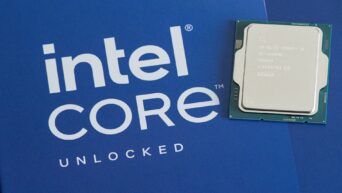Intel Corporation is committed to regaining its position as the world’s leading chipmaker, according to CEO Pat Gelsinger. Speaking at the Computex tech conference in Taipei on Tuesday, Gelsinger outlined Intel’s ambitious plans to build AI chips for a global market, leveraging U.S.-based manufacturing facilities.
“We want to build everybody’s chips, everybody’s AI chips,” Gelsinger stated. “We want them to be built leveraging the U.S. factories.”
Intel is striving to enhance its foundry business, which reported an operating loss of $7 billion in 2023. Currently, Intel is not ranked among the top six foundries by revenue, as reported by Counterpoint Research on May 22. The company, which held the title of the world’s largest chipmaker until 2017, has been overtaken by rivals such as Samsung and Taiwan Semiconductor Manufacturing Company (TSMC).
“The first piece is to get back to leadership, because a lot of the losses are associated with having uncompetitive process technology,” Gelsinger explained.
Intel is set to benefit from significant funding under the CHIPS and Science Act, with up to $8.5 billion allocated and an additional $11 billion potentially available. This funding is crucial for Intel to advance its semiconductor manufacturing and research and development capabilities.
“The capital is critical,” Gelsinger emphasized. “The CHIPS Act has created a level playing field if I were building a factory in Asia versus the U.S.”
In an effort to compete with AI chip leaders like Nvidia and AMD, Intel is making strides with its new products. At the Computex conference, Gelsinger unveiled the Xeon 6 processor, which offers improved performance and power-efficiency for data centers.
“Xeon 6 was a big step forward in our competitiveness to not only hold on to our market but regain some of those market share opportunities that we’ve lost,” Gelsinger noted. “As we get back to process leadership, we will also achieve much better profitability.”
Despite geopolitical tensions, China remains a significant market for Intel. Gelsinger reiterated Intel’s commitment to navigating the complex landscape and complying with regulations while continuing to invest in the Chinese market.
“China is a big market for Intel today, and one that we’re investing in to be a big market for Intel tomorrow,” Gelsinger said. “Navigating carefully, we build products that are compelling and ensure compliance with the laws of both countries.”
Intel, along with other U.S. chipmakers such as Broadcom, Qualcomm, and Marvell Technology, generates a substantial portion of its revenue from China. This underscores the importance of the Chinese market in the global semiconductor industry.

































